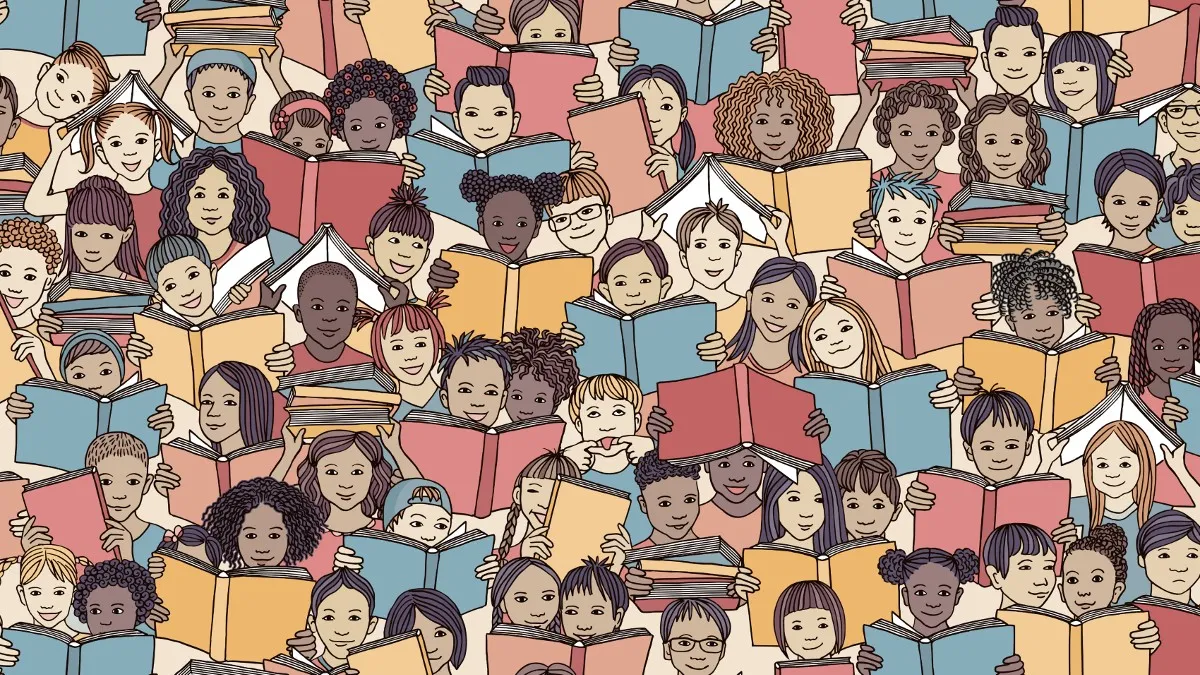Conservative book banning efforts have been sweeping across the nation in the past few years. However, while these book-banners seek to further diminish BIPOC and LGBTQ+ voices in literature, their efforts are having the opposite effect.
Each year, the United States has been seeing record-high numbers of book bans and challenges. The most recent record was set during the 2023–2024 school year, which saw over 4,000 bans. Florida alone boasted a staggering 3,135 bans across 11 school districts. Conservative parents, politicians, and hate groups like Moms for Liberty are leading the movement. They have created a false narrative claiming that book bans are about “parents’ rights” and removing pornography and sexually explicit materials from schools. However, time and time again, the books they are targeting are found not to be remotely close to pornography and are instead usually works that highlight female, BIPOC, and LGBTQ+ voices and topics.
Book banning has never been about protecting children—it is about silencing marginalized voices. Parents fear books that so much as acknowledge the existence of the LGBTQ+ community, racism, and more. They’re terrified their children will view these groups with compassion or become educated on difficult but important topics like racism, sexism, homophobia, and abuse. If they had it their way, book banners would rid America of any book that doesn’t strictly tell a whitewashed version of history or solely feature white, heterosexual characters. However, their efforts to rid the publishing industry of the tiny bit of diversity it boasts is backfiring.
Diversity in publishing is slowly, but steadily, rising
Research shows that diversity in publishing actually rose between 2015 and 2023, even making strides from 2020 onward, when book banning first began rising significantly. The reason is that conservative efforts to rid publishing of diversity are only inspiring authors and publishers to push back by further elevating diverse voices.
Fast Company spoke to several authors and publishers who confirmed they are ramping up their efforts in response to conservative book bans. Author and illustrator Nikkolas Smith told them, “It fires me up to make more books about truth and history and justice for all. I want to live in a country where there is diversity of thought.” Meanwhile, independent and large publishers alike are increasing efforts to support authors like Smith, even if we still wish they’d do more.
The efforts do appear to be paying off. The publishing industry has long struggled with diversity and inclusivity, and the number of diverse authors and books today is still not enough. However, the numbers are slowly rising. For example, in 2020, only 7.4% of children’s and YA books were by Black authors, while just 11.9% featured Black characters. However, by 2023, the number of Black authors had risen to 13.4%, while books about Black characters rose to 15%. Indigenous voices have also increased, with the percentage of Indigenous authors rising from just 1.1% to 2.4% between 2020 and 2023. Asian, Latine, Pacific Islander, and Arab voices have also experienced slight rises.
Again, these percentages are still shockingly low for the publishing industry, but to see any growth at all during the years in which book banning was at its height is significant. Meanwhile, a recent survey found that diversity in the publishing workforce is also rising. The number of BIPOC workers in publishing rose from 21% in 2015 to 27.5% in 2023. Also, LGBTQ+ YA books sold record numbers in 2022 despite these books being targeted the most by book banners.
Book banners have tried desperately to silence diverse voices and force LGBTQ+ and BIPOC authors out of the publishing industry. They have also desperately tried to block sales of books they dislike by passing book-banning legislation, enforcing school book bans, or targeting book fairs. Yet, in the four years their efforts have been at their height, the industry actually showed small signs of improvement in representing and highlighting diversity. It can’t be denied that book banners have caused countless problems for children, teachers, and librarians, but, at the end of the day, their actions are only serving to emphasize that BIPOC and LGBTQ+ voices need to be highlighted and celebrated now more than ever.
(featured image: frimages/Getty)









Published: Apr 23, 2024 01:51 pm